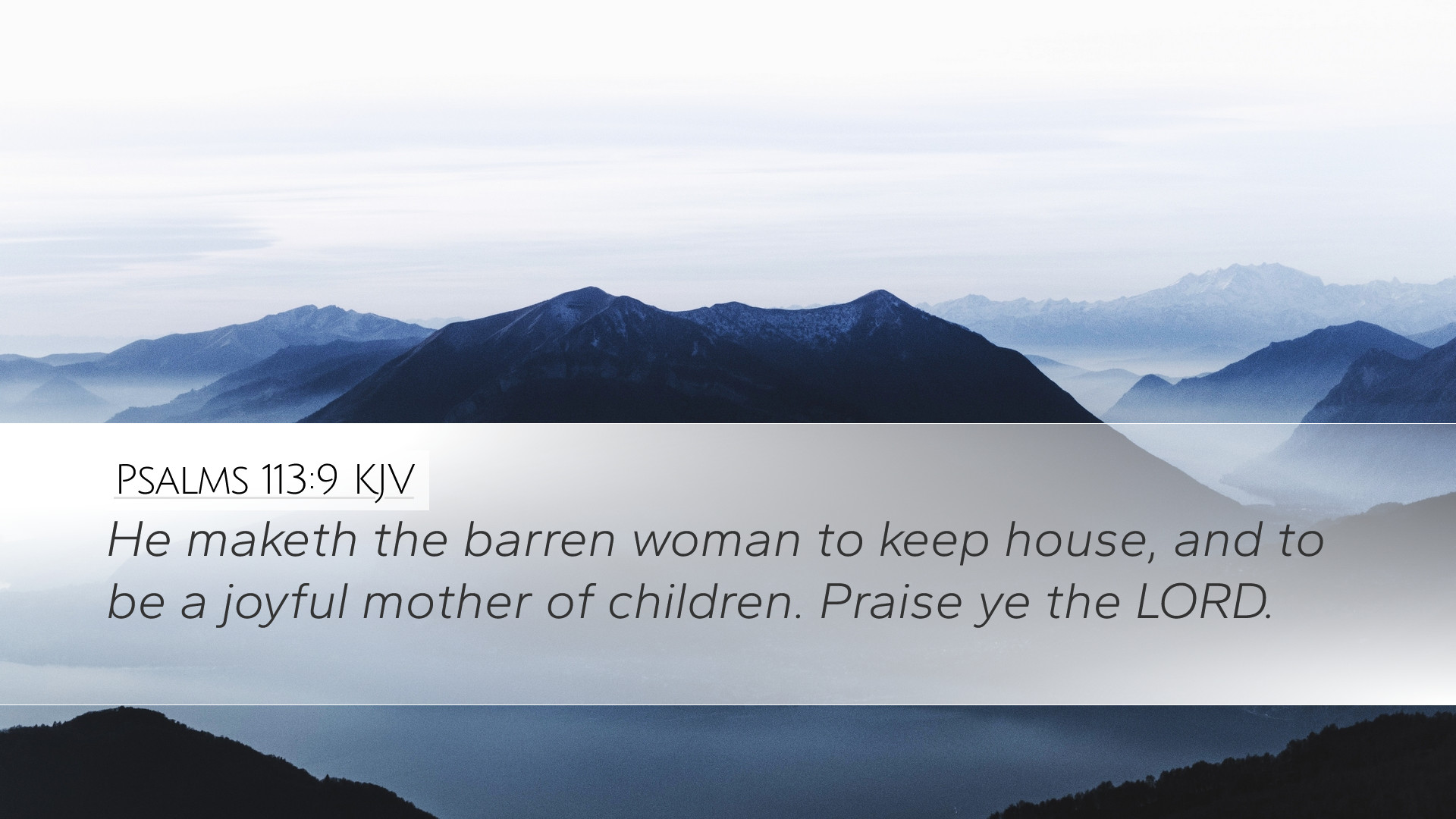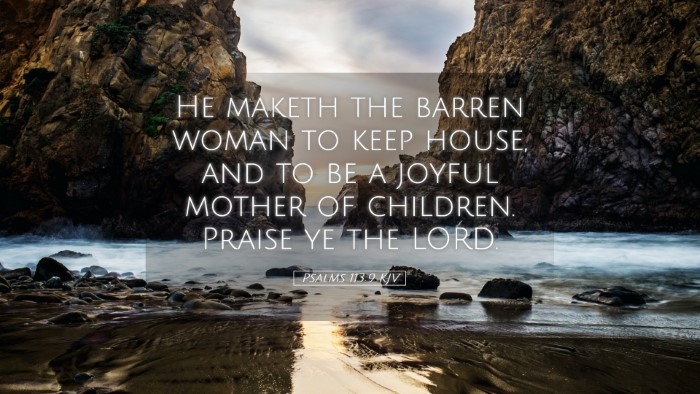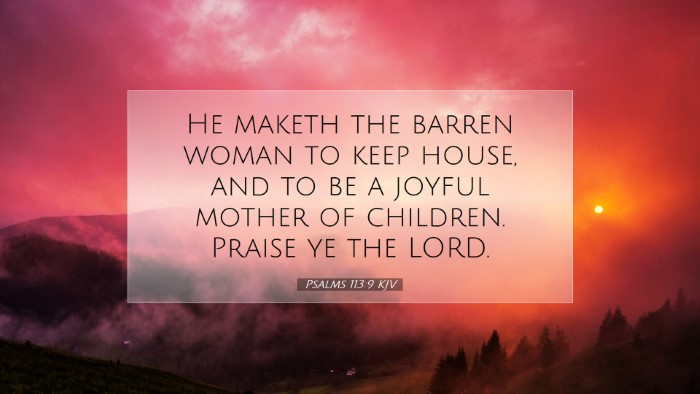Psalms 113:9 – A Commentary Compilation
Verse: "He maketh the barren woman to keep house, and to be a joyful mother of children. Praise ye the Lord."
Introduction
The verse Psalms 113:9 presents a profound truth concerning God's sovereignty and grace. This commentary seeks to collate insights from respected public domain scholars such as Matthew Henry, Albert Barnes, and Adam Clarke to unveil the depth of this verse and its implications for believers.
Divine Sovereignty and Grace
Matthew Henry emphasizes the miraculous nature of God’s power in transforming the lives of those in despair. The psalmist highlights God’s ability to take a barrenness and create abundance. This not only reflects God's sovereignty over creation but also His intimate involvement in the lives of His people.
Albert Barnes expounds upon the notion of barrenness as a metaphor for spiritual desolation. The transformation from barrenness to fruitfulness symbolizes a larger spiritual reality: God’s grace can turn our weaknesses into strengths. It serves as a reminder that with divine intervention, desolation can give way to hope and joy.
The Barren Woman: A Symbol of Hope
According to Adam Clarke, the barren woman symbolizes those who may feel marginalized or overlooked in society. In the cultural context of ancient Israel, fertility was highly valued, and a woman without children often faced stigma. God’s promise to make her a "joyful mother of children" flips societal expectations on their head. Clarke notes that this is not merely a biological miracle but a profound demonstration of God’s kindness and provision.
Societal Implications
Such transformation has implications for how we view those who struggle with barrenness, whether literal or metaphorical. The church is called to support and uplift those who feel unfulfilled in their lives. Barnes encourages believers to reflect on their own 'barrenness' and recognize the potential for divine intervention. Believers should anticipate that God can weave joy from sorrow, and loneliness into community.
- Expectation: The healthy anticipation that God will provide for needs and desires.
- Empathy: Cultivating a spirit of understanding towards those in despair.
Joy and Maternal Imagery
The imagery of a "joyful mother" holds deep significance. Henry discusses how motherhood in the biblical context represents not just biological reproduction but the nurturing of faith and community. The joyful aspect signifies that motherhood is a blessing from God, which ought to be celebrated, regardless of one's circumstances.
For students and theologians, this verse serves as a call to revisit their understanding of roles within the family and church. Joy in motherhood implies that fulfillment is not solely found in personal achievement but in relational dynamics and divine purpose.
Call to Worship
To conclude, both Barnes and Clarke emphasize the importance of the concluding phrase, "Praise ye the Lord," as a call to worship. This is not just a conclusion but an invitation into a lifestyle of worship. God's ability to transform barrenness into life should evoke praise and recognition of His omnipotence and kindness.
- Worship as Response: Praising God is an appropriate response to His actions in our lives.
- Community Worship: This verse illustrates the necessity of communal praise to acknowledge God’s blessings collectively.
Conclusion
Psalms 113:9 is a testament to God’s power to create joy from barrenness. The insights from these venerable commentators reinforce the truth that all aspects of human experience can be transformed by God’s grace. Pastors, students, theologians, and scholars are encouraged to reflect on their own lives through the lens of this verse and to inspire others to recognize God's capabilities in their own journeys.


